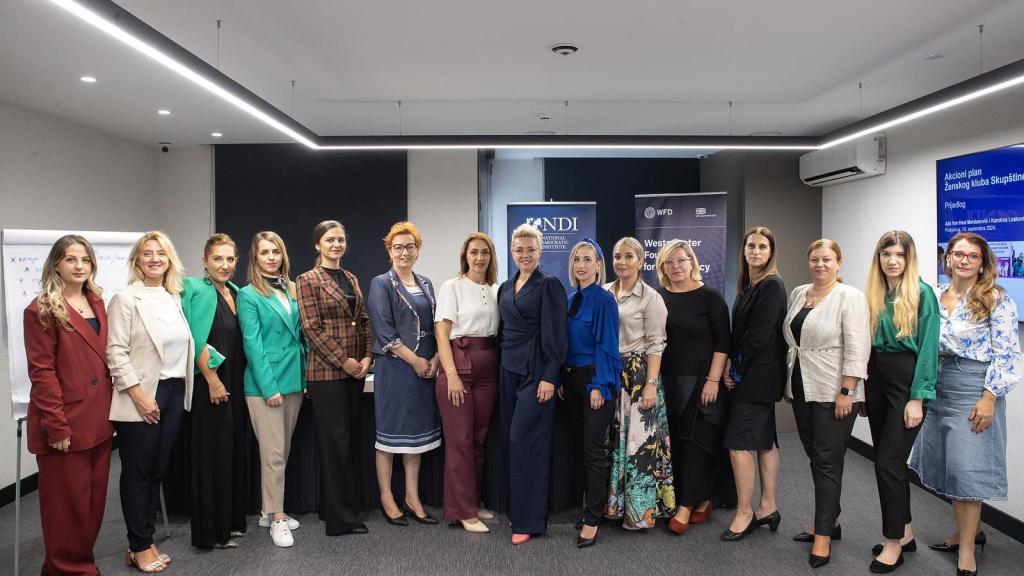Confronting violence against women in Politics in Montenegro – what does it look like when we flip the coin?

It is well known that women are less represented in politics and decision-making places around the globe. In places where women are equally or close to equally represented in politics, it is often thanks to special provisions such as quotas. However, quotas alone do not guarantee meaningful participation. Montenegro introduced a gender quota in 2012, and the number of women active in politics is still low.
To assess the root cause of the issue, WFD Montenegro began asking why women do not participate in formal politics.
Our research found that the rise in violence against women active in Montenegro’s public and political life is one of the contributing factors to low women’s political activism. We found that 70% of women said that nothing would motivate them to become more active in politics. In this environment, it is no wonder than the number of politically active women in Montenegro is decreasing.
When politics is a hostile towards women, we all lose out. Research shows that when women can access formal political spaces and lead, the whole of society benefits. Both democracy and society suffer when women cannot fully, equally, and safely take part in politics.
To raise awareness about violence against politically active women, help tackle this problem, and spread a message that women rightfully belong to the political arena, WFD Montenegro organized a public campaign in cooperation with the Club of Women MPs.
“What would you do in my place?”
The campaign was based on the idea that the audience should hear real hate speech that women politicians face in the country. Recognising that there is a difference in the hate speech male and female politicians receive, and that hate speech aimed at women is often focused on their physical appearance and private life, the campaign grabbed people’s attention by switching the roles, or – as we defined it – “flipping the coin”.
The campaign showed male politicians on the receiving end of typical forms of sexism and hate speech that women receive daily. Comments such as:
“It would be better if he was at home!”
“Who is doing his hair?”
“He's a bit emotional for politics!”
“It does not suit a man to shout this much.”
“Politics is a woman's thing, what is he doing here?!”
“Who is taking care of his kids?”
“If he was that good, he would have his own family!”
The campaign’s main face was the only male member of the Women MPs club, while other protagonists were women MPs, including the Speaker of the Parliament. The Women MPs spoke up for their right to take their places in public life and carry out their duties safely and delivered the main message of the campaign by asking “What would you do in my place?”. Including the only male member of the Women’s MPs Club sent a powerful message: he reminded the audience of the role of men in achieving gender equality.
You can watch the campaign video below.
The campaign achieved a huge reach across the country. For instance, more than 2/3 of the population in Montenegro saw the campaign video on television. Both public and private media recognized the value of the campaign and broadcasted the campaign for free.
The campaign culminated with a panel discussion in Parliament, where the audience was addressed by the UK ambassador to Montenegro, co-presidents of the Women MP’s club and WFD’s Country Director as well as male politicians.
If you speak Montenegrin, you can watch the full discussion below.
Building on the success of the campaign, WFD in Montenegro will continue the fight for equal rights.



